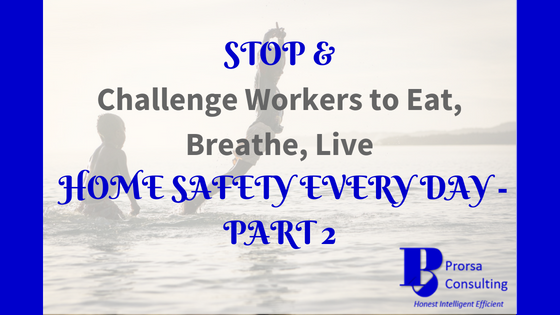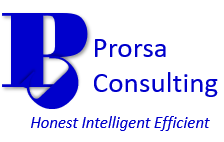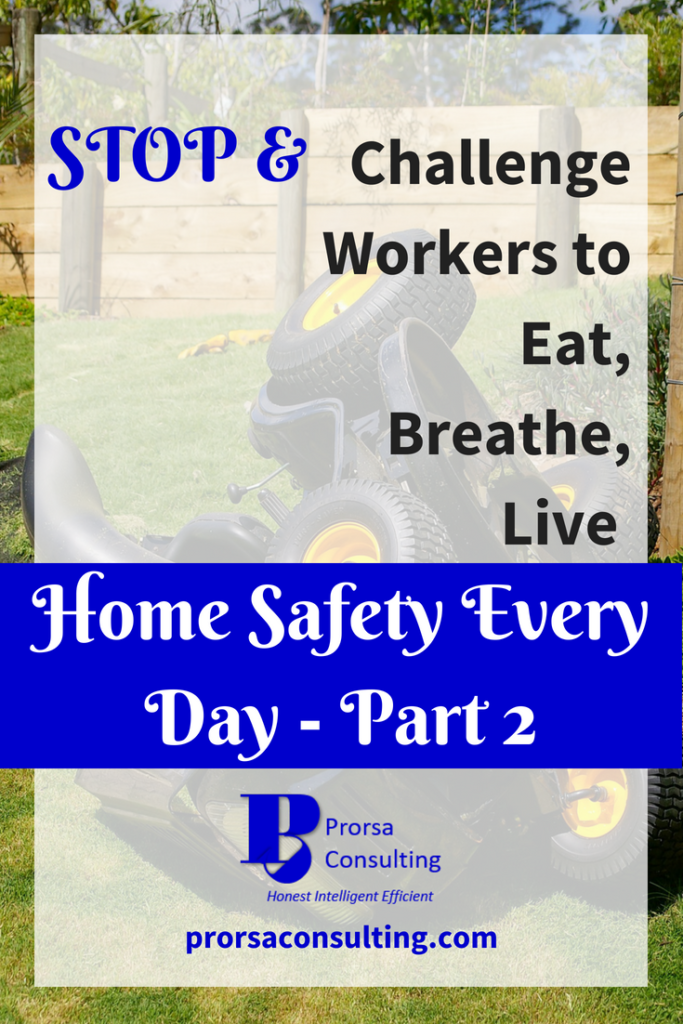Stop & Challenge Workers to Eat, Breathe, Live Home Safety Every Day – Part 2
By : Admin -

Warmer temperatures have finally arrived! The pleasant weather calls us to engage in our favorite sports, tend our yards, and enjoy relaxing summer recreation like swimming and camping. However, amid all this carefree fun, hazards still lurk all around. These dangers outside the workplace, when not recognized, potentially jeopardize our safety. Join me as we continue to explore the education we can give workers to eat, breathe, live home safety every day during the summer months.
General Outdoors for Summer
When working or playing outdoors during the summer months, we encounter certain conditions not present during other times of the year. Employers can make workers aware of the following general summer safety information for any activity.
- Warmer temperatures create a greater possibility of heat-related illnesses. Prevent heat stress/stroke by:
- Taking breaks in the shade often when temperatures are high.
- Drinking plenty of water, taking drink breaks every 20-30 minutes when performing activities outside in the heat.
- Leaving more strenuous tasks for early morning or late evening.
Check out more information on protective measures from heat illness on OSHA’s website.
- More time in direct sunlight increases the chance for sunburns and skin cancer. Combat possible skin damage by:
- Applying sunscreen (SPF 30 or higher) as directed on the label.
- Wearing large-brimmed hats to shade and protect the head and shoulders from harmful ultraviolet rays.
- All of nature is more active during the summer. This includes insects, which increases the potential for stings and bites. Stay protected from insects by:
- Treating ant mounds as they are noticed. Boric acid and diatomaceous earth can be utilized as alternatives to traditional pesticides to neutralize ant colonies.
- Preventing standing water on your property, which could give rise to West Nile- or Zika-infected mosquitoes. Additionally, use insect repellent when outdoors to prevent mosquito bites.
- Carefully rid your property of any wasps or hornets nests you may encounter. Vinegar, soap, and water can be utilized instead of traditional hornet and wasp pesticides.
- Increased activity heightens the possibility of bumps, bruises, sprains, and cuts. Remember the Boy Scout motto and “Be Prepared” with a freshly stocked first aid kit, containing:
- Band aids
- Alcohol wipes
- Gauze pads
- Ace bandages
- Instant ice pack
- Anti-bacterial ointment
- Pain reliever
- Antihistamine
- Calamine lotion
In the Yard or Workshop
Tool & equipment use . . . Dry conditions . . . Material Handling . . . these sound like workplace conditions to me. Nevertheless, all these situations can easily present themselves in the home environment, as well. Share the following tips to increase employees’ awareness on yard and workshop safety.
- The rules for using tools and equipment at home closely mirror the rules for their utilization in the workplace. Promote safe tool and equipment use by:
- Familiarizing yourself with the proper operating instructions.
- Using tools and equipment only for their intended purposes.
- Examining each piece of equipment and tool for damage prior to every use.
- Maintaining tools and equipment in good working condition.
- Personal protective equipment (PPE) isn’t just for the workplace. PPE & clothing protect us outside of work, too. Protect yourself with PPE and clothing at home by:
- Wearing long pants when mowing the yard.
- Donning closed-toed shoes during work in the yard or workshop.
- Putting on eye protection when flying materials may be present.
- Using gloves to protect hands while performing yard chores and when there is the possibility of splinters, cuts, or abrasions in the workshop.
- Protecting yourself from loud noises with hearing protection.
- Utilizing respiratory protection when work creates dust or fumes.
- We all lift and move things both at and away from work. Lift and move things safely by:
- Keeping your back straight and lifting/lowering with your legs.
- Holding the load close to your body during transport.
- Getting help via a friend, wheelbarrow, hand truck, etc. when the load is heavy.
- The summer heat and sporadic precipitation may produce dry or even drought conditions. These only increase the potential for uncontrolled outdoor fires. Control the potential for fires outdoors by:
- Closely monitoring outdoor grills and smokers.
- Not leaving children unattended while cooking outdoors.
- Using ignition sources cautiously on windy days.
- Keeping combustible materials away from ignition sources.
- Keeping the fire extinguisher readily available for incipient firefighting.
Around Water
Who doesn’t enjoy a cool dip on a hot summer’s day? Yet, we all know practicing good water safety can be the difference between life and death. Encourage employees to keep themselves and their families safe at the pool, lake, or beach by implementing the following tips.
- Our behavior strongly impacts our chances for injury. Practice the following actions around water to decrease the potential for an incident:
- Walk; don’t run.
- Always monitor children around water.
- Drink wisely. Avoid alcohol when attending children or operating motorized vehicles around/in the water, as alcohol impairs judgement and motor functions.
- Leave glass containers at home when visiting pools, beaches, and lakes. Opt for plastic or metal containers instead.
- Always follow the instructions of lifeguards.
- As with most other areas of life, around water you hope everything will go smoothly but must prepare for the worst to happen. As such, people should perform the following when planning water recreation:
- Have activity-appropriate flotation devices available.
- Learn cardiopulmonary resuscitation (CPR); you may never know when you will need it.
Want more water safety tips? Visit the Red Cross Water Safety page.
To Wrap Up Things
Potential hazards can be found around every corner even when employees are away from the workplace. So, keep a watchful eye for Part 3 of this series when we will discuss even more tips for workers to keep safe at home and play.
Prorsa Consulting is available to assist with your EHS compliance, training, data analysis, and management system needs. Check out the Services page for more information. You can also contact us via contact@prorsaconsulting.com with any questions about our services.
Your feedback on this blog’s content is always encouraged. If you found this information useful, be sure to like and/or share below. You can also give your feedback via our Contact Us page.
Don’t forget to sign up for the Prorsa Consulting Newsletter to receive exclusive content and blog updates. Moreover, you can follow Prorsa Consulting on Google+, LinkedIn, Pinterest, and Twitter.

